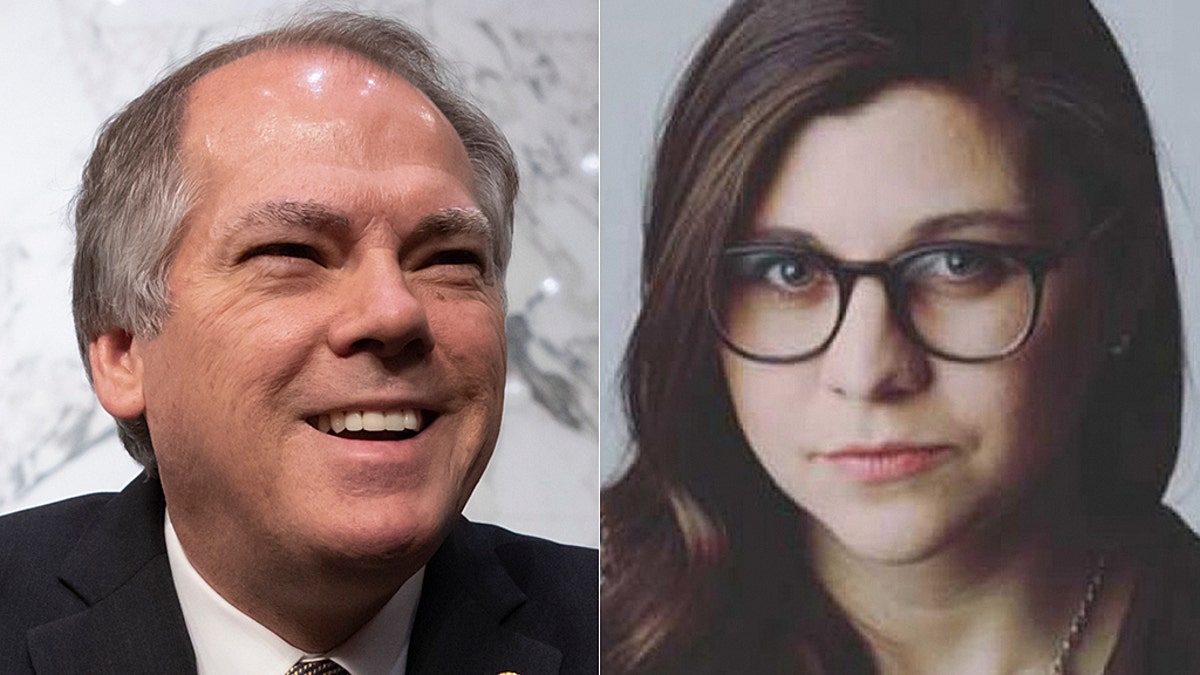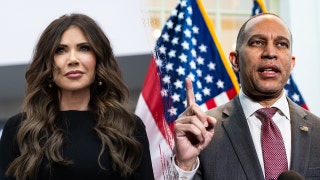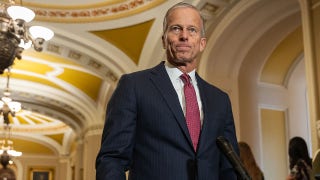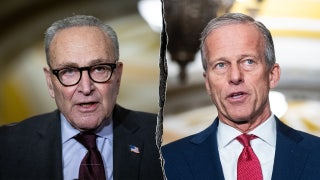
Former Senate aide James Wolfe was indicted for making false statements to the FBI about his contacts with reporters, including New York Times reporter Ali Watkins. (AP/Reuters/Twitter)
The indictment of a Senate intelligence committee official in a leak investigation might have been a blip — except that the Justice Department seized the phone and email records of his former girlfriend.
And as we quickly learned, the woman, Ali Watkins, covered the very committee where James Wolfe was the security director.
Watkins is still on the reporting staff of The New York Times, where management is examining her work history. And that makes it all the more remarkable that the paper just published a Page One exposé with new revelations about the 26-year-old journalist.
As the Times puts it, "a three-year affair that unfolded between a young reporter and a government official with access to top-secret information" is "now part of a federal investigation that has rattled the world of Washington journalists and the sources they rely on ...
"If the romance with Mr. Wolfe raised any red flags, they were not enough to prevent several news organizations from hiring Ms. Watkins, or to persuade her editors to move her off the intelligence beat."
Before the Times hired her in December, Watkins — in a meteoric rise -- reported on the Intelligence Committee for Politico, BuzzFeed, the Huffington Post and McClatchy Newspapers.
Among the new findings:
--While Watkins has claimed (she would not speak on the record to her own paper) that she didn't use Wolfe as a source, she "would make a mental note of tidbits he mentioned offhand, or gossip with him about Capitol Hill, or throw out a fact and gauge his reply."
--In 2014, when Watkins was a senior in college (and an intern at McClatchy), the 50-something Wolfe sent her a pearl bracelet as a graduation gift.
--When Watkins told an editor at HuffPost about her romance, "editors there decided they were comfortable with her continuing to cover intelligence because Ms. Watkins said she was not using Mr. Wolfe as a source."
--During her job interview with BuzzFeed, Watkins told an editor "that she was dating a man who did intelligence work on Capitol Hill. She said he was not a source, but did not volunteer Mr. Wolfe's name or title, and the discussion went no further."
--When hired by Politico last year, Watkins told an editor "that she was dating a man in the intelligence community, though she again did not volunteer Mr. Wolfe's name or his position. A spokesman for Politico, Brad Dayspring, said only that she 'did not disclose the personal nature of her relationship early on in her tenure.'"
--After Watkins and Wolfe broke up, she "started dating a different staff member from the committee. She told others that she had informed a Politico editor who did not object. But Mr. Dayspring, the Politico spokesman, said: 'Politico editors were not made aware of this relationship.'"
--Wolfe, meanwhile, "gave another young female reporter covering the Intelligence Committee some valuable information" and then "sent her a series of personal nighttime texts." But the woman deflected his overtures.
--When DOJ told Watkins in February that it had seized her records, she did not inform the Times, which found out months later on the eve of Wolfe's arrest. A spokeswoman said the paper "obviously would have preferred to know."
And that's without getting into Watkins' mysterious meeting with a Customs agent—whose actual name is Rambo—who appeared to threaten to expose her relationship with Wolfe if she didn't help him.
Keep in mind that on the day that Watkins broke the story about former Trump campaign adviser Carter Page having been under investigation over his Russia ties, Watkins and Wolfe exchanged 124 electronic messages, spoke for seven minutes after the story was posted, and another 15 minutes after her appearance with Rachel Maddow. He also said he was glad he could help with her career.
Many advocates of press freedom wanted to embrace the case of Watkins, who is the first known journalist targeted by the Trump administration in a leak probe. The Obama administration ramped up such surveillance against reporters, and Jeff Sessions says he has tripled the number of leak investigations.
But the messiness of Ali Watkins' romance with a man whose committee she intensively covered has muddied the waters, to the point that support for her has been muted at best.
I can't put it any better than the Times did:
"The relationship has prompted concern in many newsrooms that Ms. Watkins's conduct has made journalists, and particularly women, vulnerable to unfounded accusations of exchanging sex for information."
And we now know she was less than forthcoming with some of her employers.
The Times, which deserves credit for an aggressive investigation, now has a difficult decision on its hands.












































